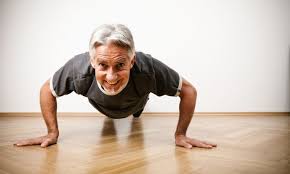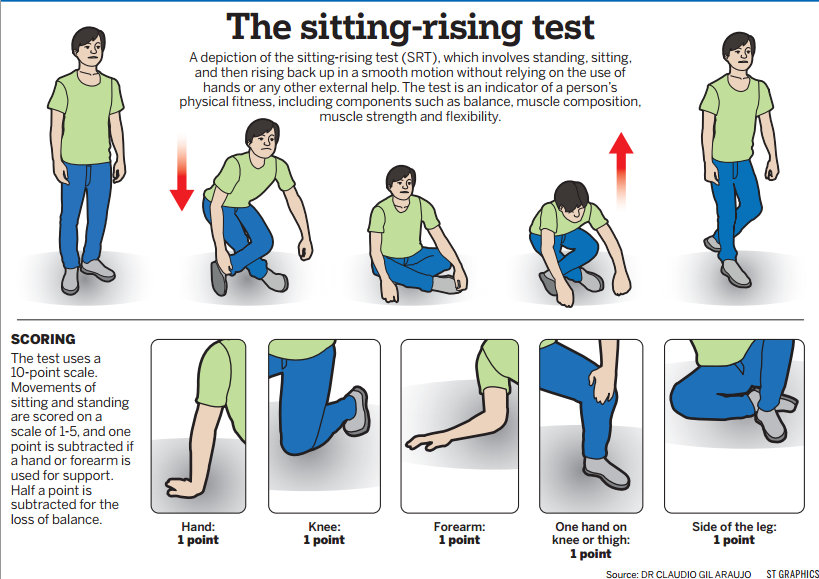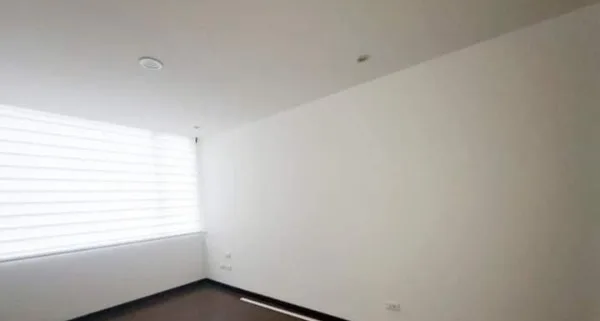Can a simple test predict how long you’ll live?
By Bryan Nelson
It’s a question we often ponder, especially as we age: How many years do I have left? Well, there are three simple tests you can do at home or work in just a few minutes that could predict how many years you have left to live.
How many pushups can you do?
If you’re an active, middle-aged man, you may want to hit the floor and start doing pushups. A 2019 study from Harvard University found that men who can complete more than 40 pushups were 96 percent less likely to develop cardiovascular diseases compared to men who could complete fewer than 10 pushups.

How many pushups can you do?
Researchers studied data from 1,104 male firefighters for 10 years. During that time period, 37 cardiovascular-disease related events occurred; but only one of them happened to a firefighter who could complete more than 40 pushups. A lower risk of cardiovascular disease was also more strongly linked to pushups than to other traditional aerobic activities like a treadmill test.
However, this study is only limited to middle-aged men with active careers, and similar results may not occur for women or older men.
How well can you climb stairs?
A team of Spanish researchers developed a stair-climbing test that can predict whether or not someone is more likely to die from cancer or heart disease, reports EurekaAlert from the American Association for the Advancement of Science. The study, which was presented at a conference, involved about 13,000 participants who all were either diagnosed or suspected of suffering from coronary heart disease.
Participants were asked to climb four flights of stairs. Those who couldn’t finish climbing the stairs or who had to pause to catch their breath or hold on to the railing were twice as likely to die from cancer and three times more likely to die from heart disease.

One thing Cuenca has no shortage of… stairs!
“If you can walk very fast up three floors of stairs without stopping, or fast up four floors without stopping, you have good functional capacity,” said Dr Jesús Peteiro, lead author of the study. “If not, it’s a good indication that you need more exercise.”
If you don’t have access to four flights of stairs, there’s another test that you can do anywhere and takes even less time.
How well can you balance?
Brazilian physician Claudio Gil Araujo Araujo came up with the test after noticing that many of his patients, especially older ones, often have difficulty with simple feats of balance and strength, such as picking up something off the floor or getting up out of a chair, according to Discover. Since balance and conditioning problems are known to increase the risk of dangerous falls and accidents (and can also harm cardiovascular health), he wondered if a patient’s flexibility, balance and strength could be used as a measure of life expectancy.
His idea was that patients might be more motivated to get in better shape if they had a more tangible way of conceptualizing how their overall health was being affected by their conditioning. If a patient is simply told to get in shape, they’re not likely to change their behavior. But if they’re told “if you don’t get into better shape, you could be dead in five years,” they’re apt to take notice.
Of course, the test also needed to be simple. If it required expensive equipment or measuring devices, the test probably wouldn’t be accessible to many people. So Araujo and colleagues developed the sitting-rise test, or SRT. It requires no equipment whatsoever and can be performed in seconds.
In fact, you can grab a friend try the test out yourself right now. The simple illustration, provided by Discover, can help you to visualize the steps. It’s recommended that you wear loose or comfortable clothing.

Just sit on the floor and stand up. The concept may seem remarkably simple, but it can actually predict how long a person will live, according to Dr Claudio Gil Araujo.
Begin by standing upright in the middle of a room. Without using your arms or hands for leverage, carefully squat into a cross-legged sitting position. Once you’re comfortable, attempt to stand back up from the sitting position — again, without using your arms for help.
The test is scored on a point scale between 1 and 10 (5 points for sitting, 5 more points for standing back up). Each time you use an arm or knee for help in balancing during the test, you subtract one point from 10 possible points. Half a point is subtracted each time you lose balance, or when the fluidity of the feat becomes clumsy.
It seems like a pretty rudimentary test of conditioning, but Araujo found that it could predict life expectancy with alarming accuracy. He tested it on more than 2,000 of his patients aged 51 to 80, and found that people who scored less than 8 points on the test were twice as likely to die within the next six years. Those who scored three points or less were five times more likely to die within that same time period. Overall, each point achieved in the test accounted for a 21-percent decrease in mortality.
The study, which was published in the European Journal of Preventive Cardiology, was only performed on patients older than 50, so the results won’t mean the same thing for younger individuals taking the test. But regardless of your age, the test should provide a useful benchmark for your overall health. If you’re younger than 50 and have trouble with the test, it ought to be a wake-up call. The good news is that the younger you are, the more time you have to get into better shape.
View this instructive video from USA Today.
_____________________________
Credit: Mother Nature Network

















